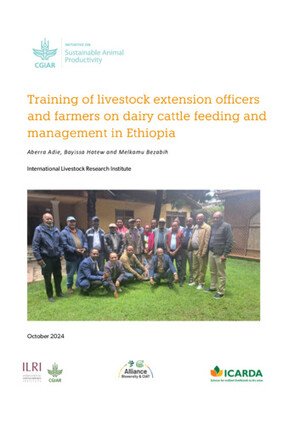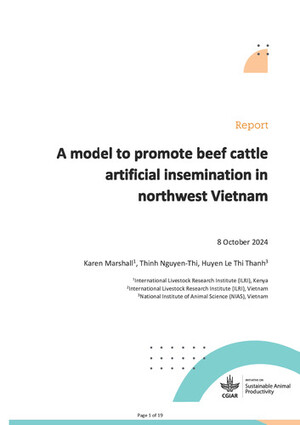
Effects of supplementary feeding and suckling intensity on postpartum reproductive performance of small East African Zebu cows
Abstract
Small East African Zebu cows which calved during the dry season were used to determine the effects of postpartum nutritional supplementation and suckling intensity on body weight, body condition score, reproductive performance and on calf mortality and preweaning growth performance. Cows were allocated based on calving body weight to either receive a supplementary feed of molasses blocks containing 10 percent urea or to serve as controls and to be grazed only. Within nutritional groups, cows were further assigned either to continuous suckling or to restricted suckling twice daily. Intact bulls were introduced 21 days after the first cow had calved. Calving body weight and body condition score of dams did not differ among the treatment groups. Supplementary feeding reduced calf mortality by 20 percent while restricted suckling reduced mortality by 13 percent. Body weight and body condition score did not vary between groups during the supplementation period. Over the 8-month period when data were collected, 65 percent of supplemented and 53 percent of control cows exhibited estrus. Larger percentage of restricted suckled cows showed estrus than of continuously suckled cows. The postpartum estrus interval was shorter by 54 days in supplemented than in control cows and by 13 days in restricted than in continuously suckled cows. The pregnancy rate was higher in supplemented than in control cows and in restricted than in continuously suckled cows.
Citation
Theriogenology;38(1):97-106









